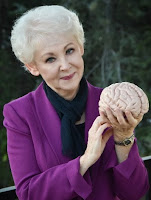The theory has been that alcohol may affect brain chemicals that signal the adrenal glands to produce more cortisol. To study this, researchers at the Veterans Affairs North Texas Health Care System in Dallas recorded the breath alcohol concentrations and cortisol levels in three groups of patients: a group of alcohol-dependent patients who were abstinent and participating in a residential treatment program, a group who were intoxicated and in the treatment program, and a group who were going through withdrawal. The study found:
· Both the intoxicated group and the withdrawal group had increased
cortisol levels compared to the abstinent group
· Cortisol concentrations actually increased during the progression from
intoxication to withdrawal
· Alcohol consumption increases the body's production of cortisol, not
only while the person is intoxicated, but also when the drinker is withdrawing
from the effects of intoxication; cortisol does remains elevated throughout the
drinking cycle
· A high level of intoxication can cause a state of general stress—as alcohol is viewed as a toxin by the brain—which can stimulate cortisol release.





No comments:
Post a Comment